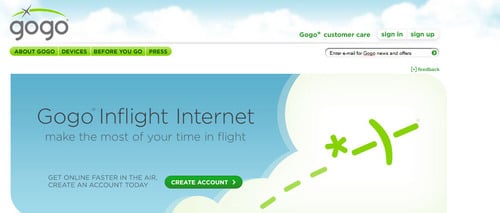Time.com slams Delta’s poor customer service; Laments the plight of aviation industry’s customer compliant handling process
(Source: Time)
Time.com has featured the plight of an airline passenger, whose problems with the airline (Delta) started with a lost bag duringa recent trip. The efforts of the passenger and his multiple attempts to get reunited with his lost baggage are not so uncommon for many travelers. Thousands of passenger go through similar ordeals and experience the agony of poor service and outdated operational systems, sucking up hours of their day(s), while waiting for airlines to do something to solve their problem. But what makes tihs Time.com story unique is the fact that the passenger in question happens to be a reporter and had a chance to air this miserable handling of the problem by Delta staff on a reputed platform. It is appalling to see what a passenger has to endure, that too when he is not the one who caused the problem in the first place. What’s more pathetic is the fact that the Delta spokeswoman seems to be clueless about what reporting mechanisms are in place for her company to receive a customer’s complaint. Shame on you, Delta!
Here are some excerpts from the Time.com article:
This is not a story about lost luggage. It’s a story about who to call at the airlines when you feel you’ve been mistreated. The answer, increasingly, is no one.
But it starts with a lost bag — the black duffel Delta Airlines lost on my recent trip from Kansas City to New York City after a nightmarish day of travel: a canceled flight on a perfectly clear morning; a cumbersome rerouting through Atlanta; arrival at LaGuardia after 6 p.m., more than five hours late. When my bag failed to show up, I faced yet another missed connection: to the bus I needed to catch for the two-hour ride to my final destination. So rather than wait in line at the lost-luggage counter, I took a phone number to call in the report later. Which I did — only to be told sternly that lost-baggage reports cannot be taken over the phone, only in person at the airport.
This seemed patently unreasonable. Delta had put me through a lot of trouble: canceling a flight, adding five hours of flying time to my day, losing my luggage. All I asked was the same courtesy accorded any passenger whose bag was lost by the airline: its return free of charge. But after three calls to the baggage folks, the best I could do was get the bag tracked (it eventually made it to LaGuardia). I was told that I had to either pick it up myself at the airport or pay a hefty delivery charge. Three times I asked for a supervisor to whom I could make an appeal. Three times I was told the person I was talking to was a supervisor. (Big labor news: at Delta Airlines, everyone is a boss!) Finally, I asked for a customer-service number so I could lodge a complaint. That’s when I found out how the airlines really feel about customer service: Delta no longer has such a number. An unhappy passenger’s only recourse is to go to the website and write an e-mail.
I spent half an hour filling out the online form, sent off an e-mail and got this response: “We are sorry but this service is unavailable at this time. Please try again later.” I managed to send the e-mail on a second try the next day. Still, I wanted a live human being to hear my case sooner. I called the main reservations line and wheedled a number at Delta’s corporate headquarters in Atlanta. But that only elicited a brusque gentleman who quickly swatted away my complaint. “That is Delta Airlines policy,” he said. “You just don’t like the policy.”Actually, airlines break their own policies all the time. Indeed, one of the few redeeming features of dealing with airlines is that, if you’re persistent and persuasive enough, you can usually find a representative willing to find you a seat on that sold-out flight, waive a change fee, ease your outrage by upgrading you to first class or give you a free meal voucher. When my flight was canceled, Delta waived the usual $15 fee on checked luggage. It’s actually smart business; even small gestures go a long way toward defusing consumer wrath.
At least, that’s the way it used to be. The major carriers have, quietly, made it steadily more difficult to air your complaints to a live human being. “The airlines don’t want to talk to their customers,” says John Tschohl, a consultant to businesses on customer service. American Airlines stopped taking customer complaints by phone several years ago, according to a spokesperson; putting the complaint in writing, he insisted, is more efficient. United used to have a customer-support number but dropped it “some months ago,” according to a reservations agent. (A corporate spokesperson didn’t return several phone calls asking for confirmation.) Even the few airlines that still have customer-service numbers, like Continental and Southwest, tuck them away deep within their websites, where only the truly obsessive can find them.
A Delta spokeswoman seemed perplexed by the whole question. First she said simply, “We direct customers to our e-mail.” After more checking, she reported that Delta does have a customer-care option on its toll-free number. When I couldn’t find it, she checked once more and clarified: the customer-care line is found on Delta’s main corporate phone number — but that number is not publicized and “it is not suggested” that customers call it. A representative at that number said they do not take customer complaints and directed me to the website.
Click here to read the entire article.



